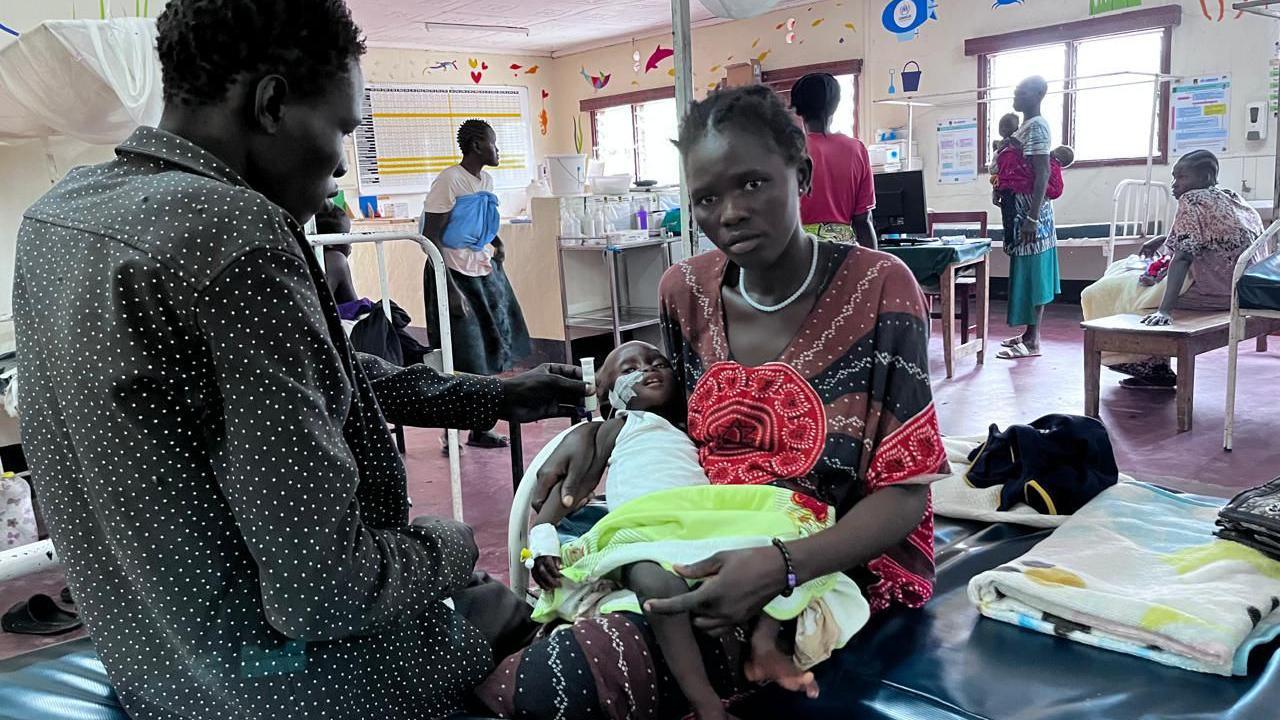Medical facilities in northwestern Kenya's Kakuma refugee settlement face overwhelming caseloads of severely malnourished children, with United Nations officials warning that hundreds of thousands face prolonged starvation after critical American aid reductions. At Amusait Hospital's nutrition ward, infants with visible skin lesions and skeletal frames occupy all available beds, their blank stares reflecting the deepening crisis.
Infants receive emergency nutritional care as rations dwindle in Kakuma camp (Credit: BBC)
The sprawling camp, housing approximately 300,000 refugees from conflict zones across Africa and the Middle East, has seen food provisions plummet to historic lows. According to Felix Okech, head of UN World Food Programme operations for Kenyan refugees, rations now provide just 30% of the minimum daily nutritional requirements - a direct consequence of Washington halting 70% of its funding earlier this year.
"We're witnessing a slowly starving population," Okech stated during a BBC interview. "Current supplies won't sustain basic health if this persists." The American aid suspension forms part of broader foreign policy shifts prioritizing domestic priorities over international humanitarian programs.
In the hospital ward, nine-month-old James represents the human toll. His Ugandan mother Agnes Awila describes impossible choices: "How can I feed eight children when we eat just once daily? The food simply vanishes." Nearby, baby Hellen lies listlessly, her skin peeling from severe malnutrition - a condition now routinely treated at the overwhelmed facility.
Medical staff administer lifesaving interventions as food shortages escalate (Credit: BBC)
The crisis extends beyond ration reductions. A vital $4 million monthly cash assistance program - which allowed refugees to purchase vegetables and other essentials unavailable in food parcels - has been discontinued. Mukuniwa Bililo Mami, a diabetic Congolese refugee, explains how this eliminated her ability to manage her health: "Previously, I bought appropriate foods. Now I consume whatever we get, worsening my condition."
Economic ripple effects have devastated the camp's informal markets. Former trader Badaba Ibrahim describes heart-wrenching scenes: "Customers beg at my shop all day, saying their children haven't eaten in 24 hours." The collapse of the "bamba chakula" cash system has paralyzed commerce that once provided supplemental income.
For South Sudanese mother Agnes Livio and her five sons, survival means sharing one afternoon meal in their 4-square-meter shelter. "Morning porridge stopped months ago," she notes while serving lentils on a single plate. "They withstand hunger until 2 PM daily."
Agnes Livio and her children share their only daily meal (Credit: BBC)
As medical teams discharge stabilized children back into food-scarce conditions, Okech warns of impending catastrophe: "August looks dire. Though some donors offer help, replacing 70% funding remains improbable." The hospital continues its three-hour feeding rotations, knowing recovered infants may soon relapse without sustained nutritional support.
Kakuma's crisis exemplifies broader regional vulnerabilities, with aid organizations reporting critical shortages across East African refugee settlements. With malnutrition rates climbing and traditional support systems collapsing, humanitarian workers urge immediate international intervention to prevent mass starvation.








Comments (0)
Leave a Comment
Be the first to comment on this article!